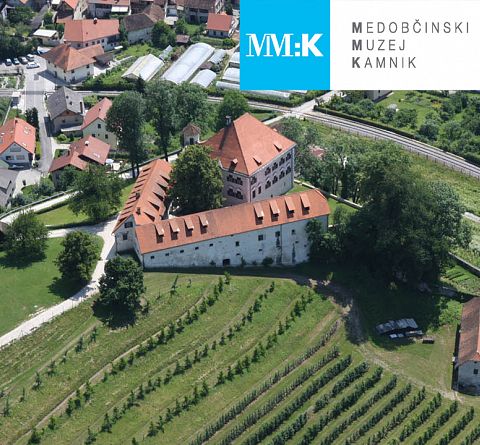Great Slovenes - November 23, Rudolf Maister Day
The comparison and connection of great Slovenes, such as the architect Jože Plečnik, the writer and priest Fran Saleški Finžgar, the painter Tone Kralj and the general and poet Rudolf Maister, has recently offered itself for various reasons, including anniversaries and centenaries.
An exhibition in Plečnik’s house entitled Finžgar and Plečnik, Friendship without Borders speaks about Finžgar and Plečnik and their work. Tone Kralj and his famous oeuvre in Primorska are associated with a kind of uprising over the unjust Treaty of Rapallo in November 1920, which took away as much as a third of Slovenian territory, and Rudolf Maister mainly with the battles for Maribor and the northern border 100 years have passed. These great men, of course, knew each other, cooperated, and fought for their nation in many different ways. Also, friends. Maister, for example, even visited Finžgar several times. Finžgar, on the other hand, is one of those who entered Maister in his Golden Book with some thought or short note. It is kept by Maister’s grandson Borut Maister, and in Maister’s birth house in Kamnik you can see it on one of the computers in the permanent exhibition.
Today, November 23, 2020, we remember General and poet Rudolf Maister, who had great unifying power for Slovenes, as much as, for example, the writer of the first Slovene book Primož Trubar, who addressed Slovenes in it for the first time in 1550 “with love Slovenes “.
After the end of the Great War in 1918, the Austro-Hungarian monarchy, in which Slovenes also lived, disintegrated. New countries, new borders were emerging. The struggle for these borders began. As already mentioned, we lost a large part of the territory in Primorska and Koroška, and in Styria the town along the border and the northern border was defended from the newly formed German Austria, later the Republic of Austria, by General Rudolf Maister. For the first time, Maister took power in Maribor on November 1, 1918, when the station commander, Colonel Anton Holik, convened commanders and some senior officers for a meeting at the Home Guard barracks in Melje. On it, he reported on the disintegrating front in Italy, on the withdrawal of soldiers, who will pose a great danger to Maribor when they return to various homelands. In his memorandum on how the army should protect the city along the Drava, he spoke as if it were completely self-evident that Maribor belonged to the then German Austria. Maister responded decisively to the colonel’s explanation: “I do not acknowledge these points. I declare Maribor a Yugoslav possession and take over, on behalf of my government, military command over the city and all of Lower Styria.” And he succeeded.
The second major test in Maister’s military career was November 23, 1918. Due to the large number of soldiers returning home after the armistice, the chaos and the small number of his soldiers, General Maister had to allow the Maribor City Council to establish Shutzwehr, the city security guard. It was supposed to protect the city and its inhabitants, but it had completely different purposes: a coup and the re-military subjugation of Maribor. Maister was aware of this threat all the time, so he waited for the right moment to get rid of the shutzwerers. In doing so, however, he pondered how to strengthen his army. Thus, on November 9, 1918, he issued a mobilization proclamation in the territory in which he commanded. Dr. Hartman, the well-known author of one of the monographs on Maister, said that he was very sharp and strict in it, and it seemed as if the Germans still had to report to Maister’s army. Slovene boys and men responded to the general’s proclamation in large numbers: 4,000 soldiers and 200 officers gathered. There were “just as many as could be brought under the roof for the first moment,” Maister said. And, “as much as he needed for his first plans.” With these soldiers, Shutzwer then attacked, disarmed, and disbanded on the night of November 22-23, 1918, at four in the morning. He led the campaign from Maribor’s main post office, which lasted only 47 minutes. It was executed brilliantly and there were almost no casualties. Thus, Maister got rid of another nightmare that hung over his head for three weeks, and for the second time he preserved Maribor as a Slovenian possession.
And to conclude, as we began, all these great men mentioned at the beginning of the record did not engage in provincial divisions, squabbles, political and party oppositions or ideologies, no, they had neither the time nor the will to do so, as they lived and worked for their nation as best they could.
Prepared by Alenka Juvan



